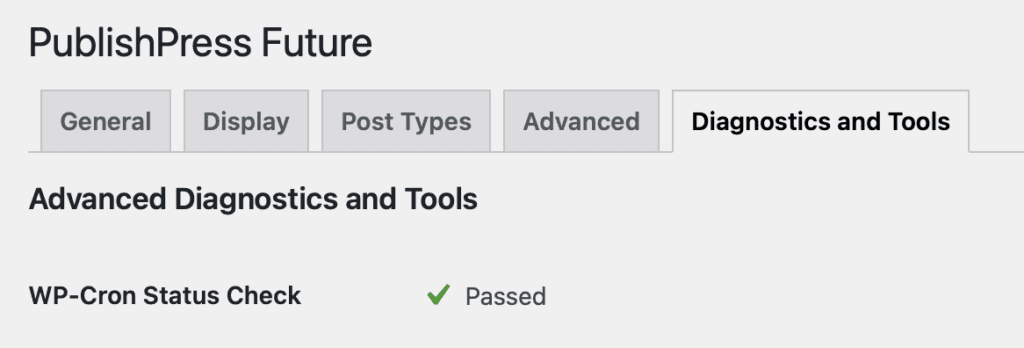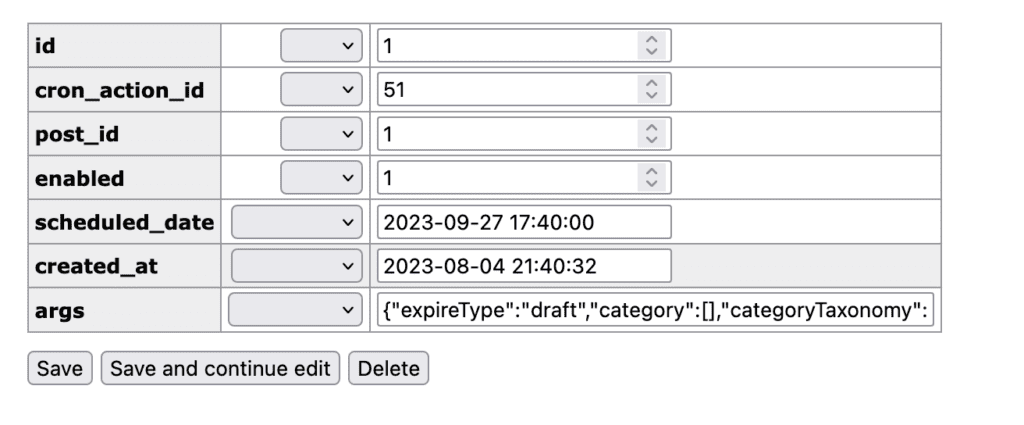The scheduling in PublishPress Future is handled by cron jobs.
This plugin does require that WP Cron is setup and functional on your webhost. Some hosts do not support this, so please check and confirm if you run into issues using the plugin.
Check that WP Cron is Active #
Go to “Future” in your WordPress admin menu and then click the “Diagnostics and Tools” tab. This table will show you whether WP Cron is active on your site:

Technical details for PublishPress Future cron jobs #
If you want to see expiry details in the database, WordPress stores cron jobs in the _ppfuture_actions_args table.

This code below shows a typical cron job entry from PublishPress Future:
{"expireType":"draft","category":[],"categoryTaxonomy":"","enabled":false,"date":0,"id":24}Some of the specific details are also held in the _postmeta table. In the image below, the “_expiration-date-type” is set to “Draft” so this post will move to the “Draft” status.
The _expirationdate is set using Unix time which is an integer number that counts date and time in seconds since 1970-01-01. There are convertors available for Unix time including Epoch Converter.

Alternatives to WP Cron #
In some situations, using the normal WP Cron option in the WordPress core is not an option, or you prefer to use an off-site cron task.
First, define a constant in the site's wp-config.php file
define('DISABLE_WP_CRON', true);
Next, configure a cron job. But this can be done on different ways, depending on the server. The cron job should call this:
wget -q -O - https://mydomain.com/wp-cron.php?doing_wp_cron >/dev/null 2>&1
